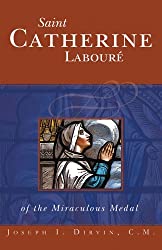
In the traditional Catholic liturgy a week ago, we celebrated the Feast of St. Peter’s Chair in Rome – paying homage to that Great Apostle, Petrus, the rock upon whom Our Lord built His Church.
Today, we witness the Conversion of the other Great Apostle, St. Paul. Both Feasts honour the outward manifestation of the fruits of the ministry of Jesus Christ.
And that fruit which is the Conversion of St. Paul, began to form with the Lord’s servant, St. Stephen.
In the Epistle reading for the Feast of St. Stephen (taken from the Acts of the Apostles) we heard the account of the martyr’s death. It read that whilst he was being stoned to death, there was a man, at whose feet the executioners laid their garments, who looked upon the death approvingly. His name was Saul of Tarsus.
As the stones struck him, St. Stephen fell to his knees and cried out:
‘Lord, lay not this sin to their charge.’ And when he had said this, he fell asleep in the Lord. And Saul was consenting to his death’.
Acts vii. 59
As we see then, St. Stephen’s final words were a prayer for his persecutors, imploring the Lord to have mercy on them.
As has been long understood, this prayer was heard and brought forth a miracle – the Conversion of the new faith’s most ardent persecutor.
According to St. Austin: ‘If Stephen had not prayed, the church would never have had St. Paul’ (Butler’s Life of the Saints).
For Saul of Tarsus was a Pharisee, who wholeheartedly followed the law. He was therefore filled with contempt towards those who followed Jesus Christ. So much so that he requested that he be sent to Damascus to persecute them there.
Of St. Paul’s character, Warren H. Carroll writes in his book The Founding of Christendom:
Paul, sinner and persecutor, was that rarest of men: a man of total personal and intellectual honesty. He had hunted down the Christians because he honestly believed them to be God’s enemies. He sought no glory for himself, no personal reward, no satisfaction of private hatreds. He was capable of complete, lifelong, deathless dedication. This capacity, when harnessed by grace, can move mountains, transform history; and that was the kind of work for which God had chosen Paul.
And this is the kind of Apostle he became! His strong will, to defend that which he believed to be God’s truth, would stop at nothing – so far as it was lawful.
The very same missionary zeal which urged him to journey to Damascus was then put to use in his journeys far and wide, proclaiming the Gospel of Jesus Christ.
Yet surely, if it were the will of God that St. Paul was to become the ardent Apostle for the faith, this would have happened, with or without St. Stephen.
But what St. Austin is alluding to, is that the Lord’s will is exercised through the pure acts of His faithful servants. St. Stephen was such a man. One who would offer his life in the name of Jesus Christ.
And one who would proclaim the charity that resides at the heart of the faith: the love of Jesus Christ Himself. Even in the face of his evil persecutors, he prayed for their deliverance from this sin.
Such testaments of love can only procure miracles. And this one did – the Conversion of the most feared persecutor of them all: Saul of Tarsus.
And this is what the Liturgy is pointing to. It was most purposeful that on St. Stephen’s day, the liturgy revealed Saul’s approval of the killing of the first martyr. For it makes more real today the miraculous nature of his Conversion.
And so on the twenty-sixth of December, the fruits of St. Stephen’s prayer were kept close to the crib, hidden within the octave of the Nativity.
Whilst today, in Time After Epiphany – where since His Baptism, our Lord’s ministry has become outwardly manifested – the fruits are now revealed through the liturgical celebration of this miraculous Conversion.








